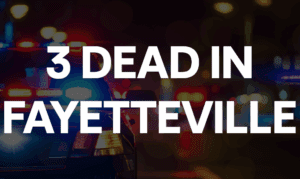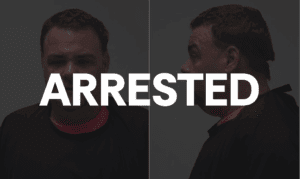The need for people to live with an enhanced awareness of identity theft was the resounding message by Fayetteville Police Det. Mike Whitlow Oct. 26 at a fraud prevention seminar held at the Sams Auditorium in Fayetteville. Identity theft has been the fastest growing crime in the country for nearly a decade.
Whitlow at the seminar said such fraud includes many types of illegal operations like credit card theft, identity theft, fraudulent emails and skimming and counterfeiting checks.
Identity theft and credit card theft pose an immediate problem for citizens, one that can begin right at the mailbox by the driveway.
“These thefts use the information of others without their consent,” Whitlow said. “Our information is floating around out there. Some of it we can control, some we can’t.”
Whitlow noted that, whether a credit card sent by a bank or a credit card application sent through the mail, a person’s mailbox is a potential treasure trove for thieves. Inherent to the theft, said Whitlow, is the reality that stealing personal information and using it for their gain, or just as likely the gain of their “employer,” is the thief’s “job.” It is a job that benefits the thief and leaves the citizen in the lurch.
Sometimes the thief will steal incoming or outgoing mail from the mailbox, even opening and copying the contents, then replacing it so the resident never knows it happened, Whitlow added.
Thefts of personal identity also occur when a thief goes through the dumpster or trash can. Once again, “This is their job,” Whitlow cautioned.
Identity thieves also use the telephone, supposedly soliciting for various worthy causes, yet all the while obtaining personal information that can wreak havoc on a person’s finances and financial information, Whitlow said.
Another common method used to steal a person’s money is with fraudulent emails, like those signifying that the recipient has won a national lottery or some other prize. Whitlow said the thief often wants some type of down payment or deposit up front, a sure signal that something is wrong.
Still another form of identity theft can come at a restaurant or other business where the server or some other employee needs to handle a person’s credit card. The theft called “skimming” occurs when the employee, who is often working in league with people in other cities or other states, uses a portable skimmer on the way to the cash register to record the information on the card and use it later.
And though Internet security continues to improve, Whitlow said when it comes to computer hacking there is no such thing as a secure website. The idea, said Whitlow, is that even though banks and credit card companies will usually replace fraudulent withdrawals, it is always important to keep up with all account activity.
So what does a citizen do to protect herself from the growing number of attempts to steal identities? Whitlow listed nearly a dozen ways for citizens to better protect themselves and their identities:
• Shred all important documents and put portions of them in different trash bags so that they cannot be put back together.
• Don’t use the red flag on the mailbox. The use of the flag for outgoing mail is not required and is often just what the thief is looking for while driving through neighborhoods.
• Never give personal information to anyone over the telephone.
• Monitor online accounts every day.
• Do not respond to telemarketers’ calls. If necessary, blow a whistle into the phone. They probably will not call back.
• Watch your back in the ATM line or cashier line and keep track of your receipts. It’s easy for those interested in your business to peer over your shoulder to get a look at your credit card number or your pin number as you enter it in the machine.
• Never use an ATM machine with something sticking out of it. The device is likely a skimmer. Call police if you see such a device and always try to use bank ATMs.
• Try to keep an eye on your credit card when paying from the table at a restaurant.
• Do not sign the back of a credit card. Instead, write “Photo ID required.”
• Do not have your home phone number listed on personal checks.
• Keep a copy of the contents of your wallet, including both sides of cards.
One of the oldest forms of financial theft involves counterfeiting checks, especially business checks. Whitlow said there has been a significant increase in the past few years, both in Fayetteville and in the region, where counterfeit checks are passed by the homeless.
The scam usually consists of four categories of players: managers, recruiters, drivers and the runner, usually a homeless person that attempts to cash the check.
The manager either receives a stolen check that is later acid-washed or computer-generates his own. Meanwhile, recruiters solicit homeless people from across metro Atlanta who are driven to various locations, including Fayetteville, to cash the bogus checks.
The homeless person may cash a check for several hundred dollars or more and receive only $50, all the while setting themselves up for the potential of being arrested for their trouble while the manager often escapes arrest, Whitlow said.
“We were getting two of these a week in Fayetteville but that’s calmed down due to strong judges and prosecutors and banks getting better at recognizing the checks,” Whitlow said.
Whitlow said that, odds are, everyone will be hit sooner or later by some form of identity theft. The idea, he said, is to “Make yourself a hardened target.”
Identity theft is the fastest growing crime in the United States for the past nine years. Georgia ranks number eight in the nation for identity theft.
Also at the seminar, a U.S. Secret Service agent gave a presentation on counterfeiting and the detection of counterfeit bills.
The seminar was cosponsored by Southern Federal Credit Union.












Leave a Comment
You must be logged in to post a comment.